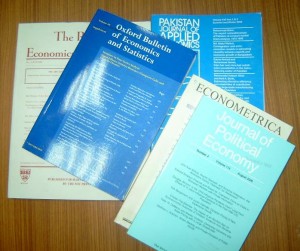Welcome to the second post in this series of how to make the most of your PhD. If you missed what these posts are all about, check out last week’s post to get all the details!
For this post, I wanted to talk about getting some generic (and very transferable, also known as soft) skills. They are the sort of thing any employer, whether you want to continue in an academic career or are thinking of make the move into industry, or even think you might want to go into something totally new, will look for. Trawl through any job ad and you’ll soon see these kinds of skills are important to employers. Unfortunately, how to go about gaining these skills doesn’t lend it’s self to creating a list, like I did last time, so this is more of a word heavy post.
Top Tip #1! Even if you are in the very early stages of your PhD, it is worth while keeping an eye on the job market and checking job descriptions, especially if you know what it is you want to go into once you finish your PhD. This way, you’ll be able to hone, from the start, the kind of skills and experience you’ll need to land your dream job (if such a thing truly exists!).
So, what are these skills I’m talking about? I’m certain the majority of you are familiar with what I mean, but just in case, here are a few examples: leadership, communication, organisational, time management skills, amongst many others etc… The truth is, you’ll get a lot of these through just completing your Phd, but it is important to think about being able to prove you’ve got these skills! You might think about using the Researcher Development Framework (Vitae) to monitor and assess how your skills are developing.
Top Tip #2! Consider signing up to PGR Tips email bulletin from Vitae -it has LOTS of information on how to deal with the challenges of completing a PhD.
Make the most of the resources on offer at your institution. Training for researchers varies from Institution to Institution, but in most cases, you should be able to access training resources (usually on-line) and opportunities (I’m thinking courses) via a ‘Graduate School’. I use inverted commas, because that is how it is know at my University, but it may vary. As part of my doctoral training, I am required to complete a number of training modules specified by my Graduate School (I could write a whole post on whether I’ve found them useful or not), but in addition, I can access a LOT of on-line training resources and other courses, that I’ve been able to complete at my own pace. I’ve targeted that training to address areas where I felt I needed to make improvements. Needless to say, not everything you may come across will be of interest. It is just a good place to start looking for opportunities.
Top Tip #3! If you aren’t familiar with your ‘graduate school’ website, I encourage you to visit it now!
VITAE
An organisation that works towards the professional development of early career researchers. Vitae often works in partnership with Universities, research organisations and funders, so it is worthwhile finding out if your institution has links to Vitae as you may well be able to take advantage of what training they have on offer. Even if that is not the case, their website is full of information about the PhD process and online resources that are extremely helpful, user friends and useful.
A full list of course available can be found here. You can expect to find courses on:
- Leadership in action
- Collaborative research
- Digital research
- Advancing in academia
- UK Grad School – three day practical learning and development programmes which enable researchers to reflect upon and develop their skills as doctoral researchers. I’ve not been on this course myself, but I know people who have and rate it highly.
AGU
The AGU website has a whole section on geosciences careers and LOTS of information, including regular career advice webinars and workshops. With the AGU Fall Meeting coming up in a few weeks time, it’s worth while having a look at what is on offer at the meeting. You can also arrange to get one on one careers advice at the meeting, follow this link. Here is a selection of things you might consider attending:
- 9th December (11am- 12pm): Career Advice Workshop – Transitioning Your Career from Academia to Industry
- 9th December (2pm-3pm): Career Advice Workshop – The Biggest Mistakes You Should Never Make in the Postdoc And How to Avoid or Recover From Them
- 10th December (2pm-3pm): Career Advice Workshop: Not Geoscience As Usual – Opportunities at the Intersection of Science and Policy
- 10th December (3pm-4pm): Career Lounge Talk – Meet Sarah Andrews, geologist, science communicator, and crime novelist
- 10th December (6pm-7pm): Networking Reception for Early Career Female Scientists and Students
- 11th December (10am-11am): Career Advice Workshop: Take Control of Your Career!
EGU
The EGU website has a couple of places to look for information, as well as job opportunities. With the newly created Young Scientists website, networking opportunities and sharing of experiences and resources should also become easier via the EGU, so keep checking! There already are a list of technical training opportunities (which I should have listed last week :s!). Plus, a fantastic list of resources with tips on all the topics I’ll cover during this series of posts. In addition, there is a Jobs tab on the main EGU website.
Publications
Stay tuned to the careers/jobs pages of both Nature and Science, as they have a selection of blog posts, articles, tool kits (Nature), tips and tools (Science) where you may find information on how to develop transferable skills. Science even holds its own Workshops (so depending where you are based, this may well be of interest). Whilst there isn’t quite as much information, it worth while scanning the New Scientist career pages for some useful resources too.
Next Scientist
Is a website with a range of blog posts and articles on all things PhD! There are posts about how to improve your communication skills, why blogging is useful, links to free e-books on how to get through your PhD and you can even volunteer to write a blog post of your own. You can also follow Next Scientist on twitter (@NextScientist).
Blogs
Here is just a selection of blogs where I’ve either found useful information or links to resources and opportunities. Admittedly, this list is based on my personal taste, by no means exhaustive and focuses on the overall academic experience, rather than being specific to Earth Science, but they may be relevant to you too.
That’s all for now! Next Week: Public Engagement, Science Communication and Outreach.


